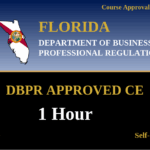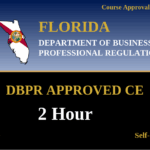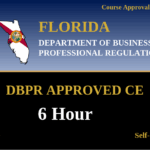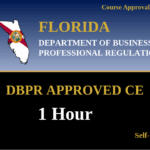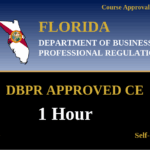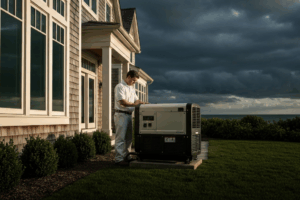
Florida Electrical Contractor License: A Complete Guide
Florida Electrical Contractor License: A Complete Guide
Florida’s booming construction market, with annual construction spending regularly exceeding $100 billion, presents a massive opportunity for skilled electrical professionals. But navigating the state’s licensing landscape can feel as complex as a substation wiring diagram. From Miami high-rises to sprawling residential communities, a valid Florida electrical contractor license isn’t just a piece of paper—it’s the key to legally and safely powering the Sunshine State. This guide breaks down the critical differences in license types, exam requirements, and the continuing education needed to maintain your professional standing with the Electrical Contractors’ Licensing Board (ECLB).
Certified vs. Registered: The Great Divide in Florida Licensing
The first and most crucial distinction to understand is the difference between a certified electrical contractor and a registered electrical contractor. Your choice between these two paths will define the geographic scope of your business and career.
- Certified Electrical Contractor (EC): This is an unlimited, statewide license. Holding a certified license means you have passed the state’s rigorous competency exams and can perform electrical work anywhere in Florida, from Pensacola to Key West. This is the path for contractors with ambitions to operate across different counties and municipalities without being restricted by local boundaries.
- Registered Electrical Contractor (ER): This license is limited to the specific local counties or municipalities where you have already obtained a Certificate of Competency. Essentially, you are “registering” your local license with the state. This option is suitable for professionals who plan to exclusively serve their local community and do not require statewide authority.
While both are regulated by the Florida Department of Business and Professional Regulation (DBPR), the path to obtaining a certified license is more involved, requiring you to pass the state-administered Pearson VUE electrical exam. A registered contractor, by contrast, relies on their local qualifications.
Demystifying the Tiers: Contractor, Master, and Journeyman Electrician
A common point of confusion is how titles like journeyman electrician and master electrician certification fit into Florida’s system. Unlike in many other states, Florida does not issue statewide journeyman or master electrician licenses. Instead, these are typically certifications granted at the local (city or county) level.
Think of it as a career progression:
- Electrician School & Apprenticeship: Your career often starts with foundational training, possibly through a program recognized by organizations like NCCER.
- Journeyman Electrician Experience: After accumulating sufficient on-the-job hours, you can test for a local journeyman electrician certification. This proves your technical skill under the supervision of a contractor.
- Master Electrician Certification: With further experience, you might earn a local master electrician certification, demonstrating a higher level of expertise.
- Contractor License: To run a business, pull permits, and hire other electricians, you must obtain a state contractor license—either registered or certified. Your local master or journeyman electrician experience is often a prerequisite to qualifying for a local certificate of competency Florida, which can then be used to become a registered contractor.
Navigating the Path to a Certified License
For those seeking the statewide unlimited electrical contractor license, the process involves proving experience, financial stability, and passing two separate state exams.
The examination process managed by the DBPR electrical license division consists of two key parts:
- Technical/Safety Exam: This portion tests your in-depth knowledge of electrical principles, safety protocols, and code requirements.
- Florida Business and Finance Exam: This exam is critical and covers topics beyond wiring, including labor laws, lien laws, financial management, and business structures. A thorough understanding is essential for long-term success.
Applicants typically schedule these open-book exams through Pearson VUE after their application is approved by the ECLB.
Florida’s Specialty Contractor Licenses
Beyond the general electrical license, the ECLB offers several specialty licenses for specific scopes of work, which also come in certified (statewide) and registered (local) versions. These include:
- Alarm Systems Contractor (EF): A Florida electrical specialty contractor license for all alarm systems, including fire.
- Lighting Maintenance Specialty Contractor: Covers the service and maintenance of lighting systems.
Staying Current: Florida Electrical Contractor Continuing Education
Once licensed, maintaining your status requires ongoing learning. The ECLB mandates that contractors complete a specific number of electrical contractor continuing education (CE) hours every two-year renewal cycle, which ends on August 31st of every even-numbered year. Requirements vary by license type, and it’s crucial to take courses from a board-approved provider.
According to the Florida Electrical Contractors’ Licensing Board (source: myfloridalicense.com/eclb/), here is the renewal breakdown:
| License Type | Total CE Hours | Required Topics |
|---|---|---|
| Certified & Registered Electrical Contractor (EC/ER) | 11 Hours | 7 Technical (including 1 hr Advanced FBC), 1 hr Workers’ Comp, 1 hr Workplace Safety, 1 hr Business Practices, 1 hr FL Laws & Rules. |
| Certified & Registered Alarm Contractor (EF/EG) | 7 Hours | Includes 2 hrs False Alarm Prevention, 1 hr Advanced FBC, plus hours in Safety, Business, Workers’ Comp, and Technical subjects. |
| Certified & Registered Specialty Contractor (e.g., Lighting Maintenance or Sign Specialty) | 7 Hours | Includes hours in Advanced FBC, Safety, Business, Workers’ Comp, Laws/Rules, Technical, and General credits. |
A key part of your technical training involves staying up-to-date with the Florida Building Code electrical chapter, which currently adopts the 2020 National Electrical Code (NEC). To avoid confusion, please note that while the resources linked here discuss upcoming changes, the 2023 NEC is not yet adopted in Florida; the 2020 NEC remains the effective code. Understanding recent changes, such as new definitions or updated labeling requirements, is not just for CE credit—it’s vital for compliant and safe installations. For an in-depth look at recent updates, it’s helpful to review resources on how NEC 2023 definition changes have impacted electrical work and how to comply with new service equipment labeling requirements.
The Future is Bright: Trends Shaping the Florida Electrical Industry
Holding a Florida electrical contractor license positions you at the forefront of a rapidly evolving industry. Demand for electricians skilled in renewable energy is surging, driven by the growth of solar PV systems and battery storage solutions. At the same time, the rise of smart home technology—from automated lighting to electric vehicle (EV) charging stations—requires a new level of expertise. These trends, combined with a persistent labor shortage in the construction trades, mean that qualified, licensed electricians are more valuable than ever.
Whether you are a residential electrician expanding your services or a seasoned commercial contractor, investing in your license and education is an investment in a profitable and secure future. Ensure you complete your renewal requirements on time to continue thriving in Florida’s dynamic market.
Ready to meet your renewal requirements with board-approved courses? Browse our courses today to find the exact packages you need to stay compliant and competitive.
Florida Continuing Education Courses
Explore our board-approved continuing education courses for Florida professionals:
View CE RequirementsFlorida 1 hour course on workers’ compensation
Florida 1 hour course on workplace safety
Florida 2 hours course on false alarm prevention
Florida 6 hours electrical CE course (Technical)
Florida 1 hour business practices course
Florida 1 hour course on electrical laws and rules
Disclaimer: The information provided in this educational content has been prepared with care to reflect current regulatory requirements for continuing education. However, licensing rules and regulations can vary by state and are subject to change. While we strive for accuracy, ExpertCE cannot guarantee that all details are complete or up to date at the time of reading. For the most current and authoritative information, always refer directly to your state’s official licensing board or regulatory agency.


